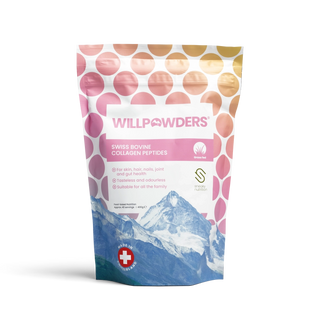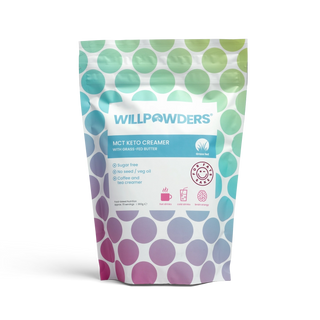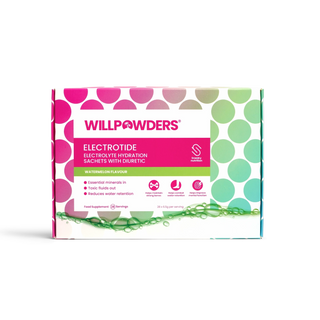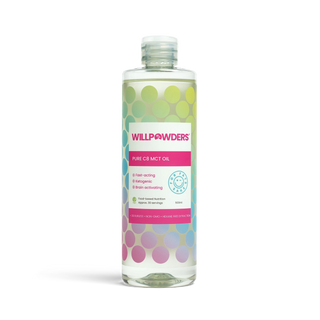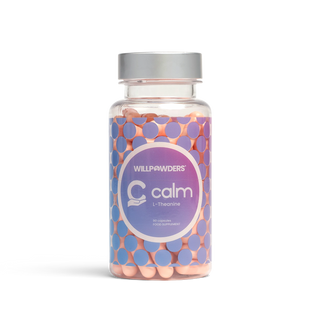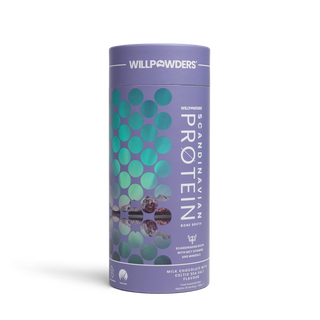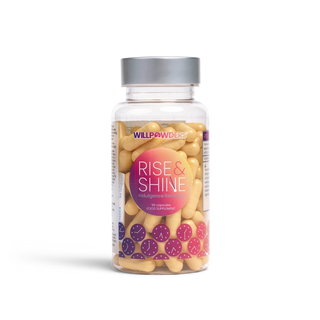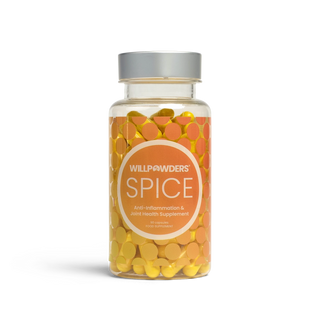
Boost Immunity with Kom'boost'cha!
You heard us right - sipping on a delicious fermented tea could well help you get through winter and beyond with a fortified immune system. When our gut bacteria is happy, it’s likely that we’ll feel happier. But, when something gets skewed in our microbiome, something goes wrong with us! Obesity, depression, nervous diseases, chronic digestive problems have all been linked to the way a gut’s microbiome functions.
It’s not a sci-fi movie, just a regular day being bacteria in a human gut
It sounds like science fiction, humans full of colonies of bacteria with the ability to kill or cure their host, to make them feel depressed or on top of the world, outpopulating not just their human host in number, but the whole of humanity. And that’s in just one gram of poop! Yup, in one gram of poop, there are more bacteria than there are humans on Earth. So, not science fiction after all, but the facts about our inner ecosystem. Talk about feeling outnumbered; we might want to consider looking after our gastrointestinal tract and raising a glass of WillPowders Kombucha to them might be just the ticket towards keeping them happy.
Freaky science and your gastrointestinal tract
Let’s accept that we are similar to other mammals, who also teem with bacteria. What happens when a mouse family is bred to be totally sterile? Well, it’s been done. These mice are born through sterile caesarean births, are fed sterile food, and breathe purified air. And these are the meeces that have helped to teach scientists what happens if we don’t have a gut microbiome. These mice, lacking essential microflora, aren’t properly developed in their guts so they have less surface area for absorbing nutrients, their gut walls are leakier, those walls renew themselves at a much slower pace and the blood vessels that are in their guts are far fewer in number than those in a healthy gut. And, beyond their gut, these mice have weaker bones and compromised immune systems. But, it’s not all bad news for Thomasina Tittlemouse and Hunca Munca. When they are given gut bacteria from healthy individuals, their health takes a turn for the better. These mice are currently helping scientists identify why and how some people’s gut microbiomes might be responsible for contributing to, for example, obesity, or other diseases. One day, we might be thanking those sterile Mickey and Minnies for their contribution to science. In the meantime, because our health can’t always wait for science, there’s plenty we can do to make our microflora happy.
Let’s make room at the inn …
Keeping those pesky bugs that make us ill out is a story that starts in the gut. While our skin is busy keeping out the nasties on our outsides, rebuffing unwanted pathogens with its armoury, our guts have the more difficult job of sorting the goodies from the baddies in our guts once we’ve gobbled them up. Obviously, we’ve got to get our fuel for life from somewhere, so not eating isn’t an option. To give credit where credit is due, the majority of the job of keeping us safe from those nasties is done by our gut bacteria, not our bodies, before the cells in our gut linings become the gatekeepers letting the outside world into our bloodstream. It’s important, then, that we help beneficial microbiota to colonise our guts and that we keep those not-so-human-friendly bacteria and other pathogens moving on out. We need those enemies to go from chew to poo while leaving our well-being well alone! This is why we need to pack our guts with good bacteria so that there’s no room for the baddies to move in. Plus, this will help our immune cells.
Immune cell boot camp
Our inner ecosystem has enough bacteria to weigh 2 kilos. These trillions of bacteria live in the mucus lining in your gut, confined to this area so that they don’t get too close to your cells. ‘The digestive tract is colonised by numerous commensal microorganisms, which make up the so-called microflora, particularly abundant in the intestine. These microorganisms, mainly bacteria, are estimated to be a hundred trillion cells, interacting with the mucous membrane lining in the digestive tract and constituting an important line of defence against pathogens from the external environment (bacteria, viruses, fungi, parasites)’ [*]. Their presence is the reason why a whopping 80% of our immune system is located in the gut.
Dr. Guilia Enders, in her book ‘Gut’ describes those bacteria’s role as boot camp training for our immune cells. Our immune cells learn to distinguish between friendly and hostile bacteria. Our immune cells learn to have a quick recce of our gut bacteria and decide what can live and what must die. And, it’s important that those immune cells learn to choose correctly as to what they’ll attack and what they’ll cuddle up with because our gut bacteria are responsible for our blood group (who knew?) and, amongst other vital roles, the good bacteria make vitamins for us with greater efficiency than any chemical engineering plant. Woo hoo - that is good news! It would be entirely no good if our own immune systems decided that the bacteria that is doing us a favour had to die. Remember, for our immune cells, sifting out the killers from the curers isn't actually quite as easy as it sounds because some bacteria masquerade as our own cells in the way they curate their proteins and some of our own cells look remarkably like bacteria do - for example, of all things, red blood cells. If our immune cells don’t learn to get their job right, the whole shebang risks becoming a massacre at a Hallowe’en masquerade ball. And that certainly wouldn’t be good news for our health.
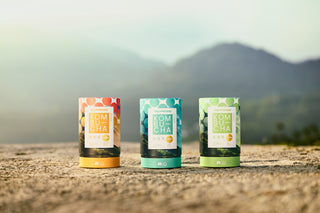
What’s for dinner? Nope - not the kids nagging for food, just your gut bacteria!
It seems our immune cells and gut bacteria have formed a faithful and co-dependent relationship with us beyond boot camp training. Here’s how much some of them love you: if they were taken out of your gut, they would flatly and faithfully refuse to grow in a lab petri dish. They’d rather wither and die without you. It seems, as far as they are concerned, that only you will do! Bless! But, no wonder because they live like emperors in there being kept warm, moist and fed pre-tasted food! The thing is that if good bacteria have taken up residence, then they are taking up room in your gut lining and that’s good news for you and bad news for those nasty bacteria we want to keep out. Ideally, we don’t want any room at the inn for those sorts. So, we need to feed them.
They love foods like onions, garlic and leeks. They also like a resistant starch so, if you are having a carb evening, to get nice and sleepy for bedtime, cook the carbs in the morning and let them cool. That way, you won’t be able to digest as many of the starches readily and there’ll be more left for your little bacterial friends. Plus, because we’re always thinking at WillPowders, we encapsulated our powdered kombucha goodness in fibre which provides a veritable banquet for your little guys in there! It’s part of the reason that in our WillPowders Kombucha Range contains a synbiotic blend. ‘Synbiotics are a combination of probiotics and prebiotics with potential immunomodulating and intestinal flora restoring activity [*]’. Our fibre encapsulated kombucha offers fibre and our added and clinically tested probiotics help to further colonise you, filling you full of immunomodulation goodness. One of our favourite types of goodness.
Immune system support? There’s a WillPowders kombucha for that!
Loving a homework assignment, as we do at WillPowders, we set about choosing a friendly strain of probiotic bacteria that’s clinically proven to love your gut and support your immune system. Our probiotic of choice is L. paracasei Lpc-37 and, while there has been controversy surrounding whether probiotics manage to survive the GI tract, we can proudly say that Lpc-37’s testing in this area showed pretty damn good test results. Pass us a gold star for Lpc-37.
Let’s take a look at the credentials of L. paracasei Lpc-37 (yes, we do feel like there should be a competition to re-name these critters! Answers on a postcard, please).
L. paracasei Lpc-37 are:
- Well suited for intestinal survival with their high tolerance to acid and bile of the intestines;
- Have a strong adhesion to intestinal cell lines - they’ll be shimmying into that mucus where they need to be like the good ‘uns they are;
- Potentially capable of reducing antibiotic-induced microbiota disturbance and maintain bifidobacteria (in trials, they were administered as a 5 strain formulation);
- Immune modulation, helping the immune system respond more effectively to pathogens;
- Capable of improving psychological and physiological markers of stress and anxiety in healthy adults as the ‘intake of Lpc-37 for five weeks significantly reduced perceived stress’ [*] in the subjects.
Defence against the Black Dog and even insomnia may be possible
It’s not quite our immune system, but mental wellness needs support too and, the thing is, it really does fall to us to keep those little critters happy so that we get a shot at happiness too. Science is just beginning to make a real link between a happy gut microbiome and a happy human. Have a little look at our blog Cha-cha-kombu-cha: The Way to Happiness Could be Through the Stomach to get more of the low down on this. In return for feeding them and offering a warm host, they offer us better mental health (it’s no joke to say that the bacteria in our guts might well reward us when we offer them a treat, a prebiotic food, and they thank us by sending chemicals to the brain that release dopamine and serotonin), better sleep and better functioning immune systems. They deserve our care and attention anyway, but, as it seems, we could well be at their mercy if we don’t take heed of them.
Scientists are beginning to make links between certain strains of gut bacteria and illnesses and enlightening studies are ongoing to establish and isolate certain strains of bacteria that cause obesity. One theory is that, if we eat a lot of high sugar and high fat foods like those found in take-away and ready food (you know the culprit - we’re looking at you, Big Food), then we are starving the bacteria further down our GI tract and they could be sending out chemical messages that tell us we are still hungry. We might not be the being that’s hungry, but they could be the beings starving to death. Interesting times for mapping the genes of gut bacteria, huh?
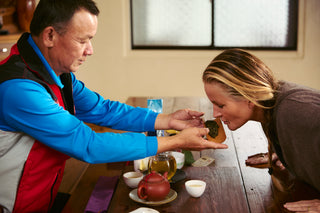
WTF’s the benefit of postbiotics?
The good news is, beyond the food you eat for the taste of it, gut bacteria will also make a meal of dead probiotics. It seems that they are happy to be somewhat carnivorous and eat their own dead kind! In fact, it would seem that this is a way you can encourage your gut bacteria to flourish. Our Fresh, Warm and Light Kombucha have plenty of postbiotics left over from the UHT process they undergo. And, yes, we hear you, and we totally get the irony: for a company who loves raw milk, putting naturally occurring probiotics to their death sounds like complete sacrilege, but we do it for a really good reason - safety first, people, safety first! The truth is, brewing up a kombucha could be done by you at home. You’d find a warm place, maybe even slightly sweaty place and leave your sweetened cup of cha there for a while to ferment. However, there is a drawback - once the yeasts and bacterias have done their work, it takes a brave soul to drink the results once fished back out of your airing cupboard. You can’t be quite sure what you’ve brewed up in terms of probiotics.
You see, pro- stands for live, it doesn’t stand for any and every bacteria being ‘pro’ your well-being as though they are some smitten troupe of cheerleaders.
If you don’t know the strains, you might well have cooked up a batch of kombu that could usher in dangerously mysterious illnesses [*] that are hard to assign between pure coincidence or sipping your homebrew kombu. Exactly! It’s probably not the sort of activity you should include on the half term amusements itinerary for the kids. And, besides, who’s got the time to tend and nurture potentially harmful bacteria when finding the time to tend and nurture yourself is awkward enough? Let WillPowders do the cooking up for you! You can find out about the gorgeous fermented tea flavours and the powers they have here in our Kombucha Your Good Self blog.
Now, dead bacteria is altogether a different matter - they’re called postbiotics. The International Scientific Association for Probiotics and Prebiotics (ISAPP) defined a postbiotic as “a preparation of inanimate microorganisms and/or their components that confers a health benefit on the host … It might also offer physiological benefits to the host by providing additional bioactivity”. Phew - we just knew they’d come in handy. That’s why, at WillPowders, we ensure our fermenting process is stopped at around two to three weeks and the kombucha subjected to a UHT process but the potential of those postbiotics to be useful to your gut remains, just super safely, this time.
Further Reading
Only if you’re not squeamish and you’d like to read more about those sterile mice and the work they are assisting in, try Germ Free Mice
To read more about Synbiotics, you could try here.
For Guilia Enders 'Gut' (not her literal one, obvs, her book) try here.
Disclaimer
Our blogs are written with love in the hope that they go some way in helping you feel like the rockstar you are, and whilst we do our due diligence, research like maniacs and fact check our stuff, we know everyone’s journey is different. They are intended to educate and empower you, not usurp medical advice. We would never advise you to stop, adjust, or modify any prescription medication without the direct supervision of your healthcare practitioner, but don’t be afraid to talk to your doctor about your new found knowledge, brought to you by the marvels of nature because they don't know everything!

